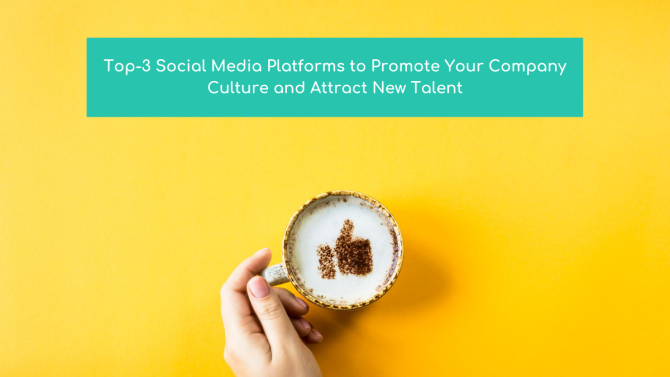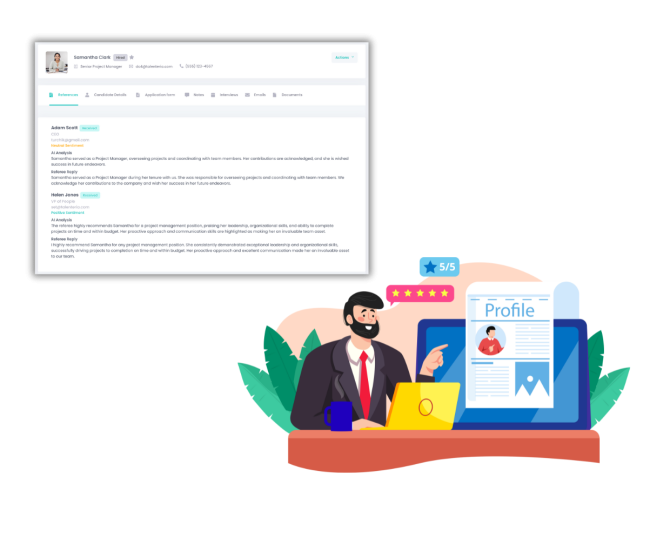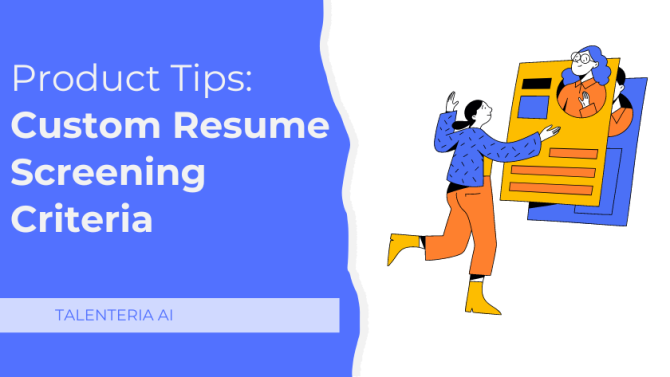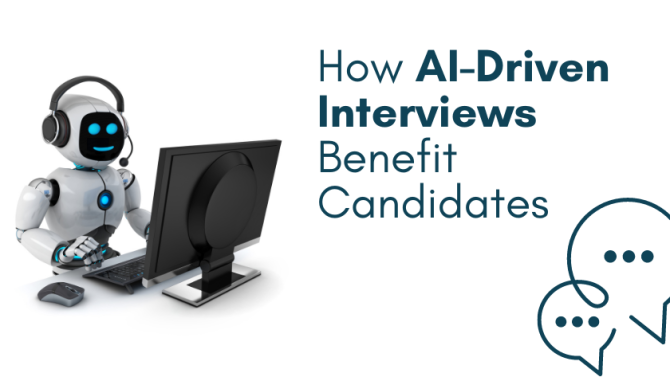
The online recruitment process often consists of various strategies. As social networks have become an important part of our professional and personal lives, they often are a part of such strategies. Over 3.6 billion people are using some sort of a social platform in 2020, so chances are that the talented and hardworking people you’re looking for are among them.
Another way many employers use social media in their recruitment process is to promote their corporate culture. The positive and strong employer brand presence makes the job seekers feel more at ease and certain about their choice. But which of the dozens of social media platforms is the best for all these goals? Let’s take a closer look at the best of them to find out.
1. Facebook
Facebook is the biggest social network, with 2.7 billion active users monthly. It allows us to share a wide range of different content, from text posts to videos, which makes it great for the realization of various employer branding strategies. However, it has its downsides for recruiters as well.
Pros:
- The huge user base means a wide demographic. Men and women of all ages and all backgrounds might see your post regarding an open position. What this means is that there is a large talent pool at your disposal – and it drastically increases your chances of finding the right person for a job. Furthermore, more people will see your efforts to maintain and improve your corporate culture, which will strengthen your corporate brand. That, in turn, will persuade even more people to try their luck applying to a position in your company.
- It’s a more personal connection to your potential employees. Facebook highly tailors each users’ feed to suit their needs. So, your recruiting messages and other posts will most likely appear to people who might be interested in it, and it will be among posts made by their family and friends, which psychologically will reinforce the idea that you are trustworthy. Besides, the posts might spark a discussion in the comments, which will make your page look and feel livelier. And engaging people is a goal of every social media marketer.
Cons:
- You need to develop a clear strategy on what to post on your page. While the Facebook algorithm will try to get your message across to people that want to hear it, it is not ideal and it won’t work effectively enough if you want to find people of a certain demographic or with a certain set of skills. Both hiring people and promoting your company culture through Facebook requires thorough planning on what each post should contain, how often you should post content. For that, you need to clearly define the audience you’re trying to talk to and determine what they want to hear, which might be hard.
- You need to stand out from the crowd. Facebook often bombards its users with tons of various content to keep them occupied and to make them stay on the website. If you want to be noticed between all the beautiful pictures and interesting stories, you need to be original as well. Formal language and stock images of happy people won’t cut it here – some sort of a joke or a genuine testimony from an employee will have a better chance of catching someone’s eye. You would need to spend some time and effort to create the content worth posting and sharing.
2. Instagram
Instagram is another gigantic social media platform, with more than 1 billion monthly users. While it is technically owned by Facebook, it is a completely different can of worms, especially when it comes to recruitment.
Pros:
- Instagram has a younger demographic – over 60% of the users on the platform are aged 18 to 34. If you’re looking to impress passionate and hungry students or you want to snatch up talented recent graduates, Instagram is the place for you. Especially if you’re looking to fill a position in a creative field – you may see examples of candidates work right on their profile. What makes it even better is that this market is almost unexplored. Not a lot of companies are focused on developing their Instagram presence – which means that there is less competition for you.
- It is easier to use to convey the atmosphere. Instagram content is visual, and photos and videos are what captures the feel of the moment in the best way possible. It is much easier to display your organizational culture, the relationships between the employees, your vision, and authenticity through an Instagram account than it is through any other social media platform. It gives your company a recognizable face and a unique voice through your employees that you can use to reinforce your company brand and values. The content is also easy to share and can become a referral.
Cons:
- The content is almost exclusively visual. While photos and videos work great to convey some types of information, for others they are not suitable at all. While it is possible to create text posts on Instagram, usually they don’t get a lot of attention and in some cases frowned upon by users. Long video formats are also not the best choice for Instagram – right now, most users are focused on short Stories rather than watching a full-format video. As this is a platform for Millennials and Gen Z, you need to closely follow the trends.
- You might learn nothing about the person or too much. Instagram users usually keep their profile info more personal and mention less about their job experience or professional skills. This means that you won’t know who you’re dealing with until you ask for a CV. A lack of professional info is often accompanied by an excess of a personal one. People often document on Instagram every step of their life. You don’t need to know how and with whom your potential employee spends their free time, and it might even taint your opinion of them as a professional.
3. LinkedIn
There is no way you can talk about social media and recruitment and not mention LinkedIn. This social network was specifically created for professionals to connect with employers and vice versa. So, are there any downsides to it in this regard? Let’s take a closer look.
Pros:
- It is focused entirely on professional development. While on other social media platforms users are flooded with different types of information on different themes and in a different context, content on LinkedIn is usually simpler and to the point. It makes it easier for you to reach the right talent pool if you’re trying to attract new employees and it allows you to clearly define your employer value proposition if you’re trying to promote your company. It also provides you with clear professional history and skillsets of your potential employees, so you don’t have to guess whether the person is right for you.
- There is a large market of passive candidates. A lot of users on LinkedIn are not actively looking for a job, but are still active users on the platform. So, if you manage to create a post in the right group or refer it through the right sources, you might end up bringing in the talent pool not available on any other social network. There is also a specific tool that might help you find idle people with the right experience and the right expertise.
Cons:
- There is a lot of competition. LinkedIn is the first place any recruiter checks when they’re looking for someone to fill the position. Depending on the field, a new user might be immediately conducted by dozens, if not hundreds of companies looking to offer them a job. Your proposition might just drown in the wave of other suggestions. Which is why you need to make it as appealing, eye-catching, and convincing as possible.
- The cost of premium tools might not be worth the price. The tools provided by the platform for recruiters are helpful in their search of a perfect candidate, but the price the company has to pay for it might not be sustainable in the long run. For bigger companies with constant staff turnover, it is reasonable to pay for a tool that is used fairly often. It is unreasonable for small companies to purchase the LinkedIn Recruiter tool to use it once.
Overall
While there is a clear consensus that you should use social networking platforms to hire new people and promote your corporate culture, there is no clear answer to the question of which platform is the best for this. Your choice of a social network should depend on your situation – which company you work at and which position you’re looking to fill. The companies mentioned on this list are the best places to start your campaign, but there are multiple other choices you could employ as well. Set up your goals, do your research, make an informed choice, and put some time and effort into your recruitment efforts if you want to succeed.





